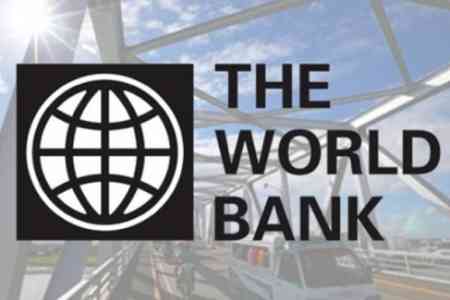


ArmInfo. Armenia intends to attract a $40 million loan from the International Bank for Reconstruction and Development, a part of the World Bank Group, for the reconstruction of three electrical substations. The issue to approve the signing of an agreement with the Bank is included in the agenda of the RA government meeting, scheduled for August 1.
As noted in the rationale for the decision, the project plans to reconstruct the Shahumyan-2, Marash and Yeghegnadzor substations. The Shahumyan-2 substation was built in 1964, Marash - in 1972, and Yeghegnadzor - in 1966. Most of the equipment at these electrical substations has been in operation for more than 40 years, many of them have physically and morally worn out. During operation the structures have become unusable, and the cable trenches are in extremely poor condition, not providing proper waterproofing. This, in turn, leads to the destruction of the insulating layer of cables and the occurrence of accidents.
These substations are of decisive importance in terms of ensuring safe and reliable power supply to consumers.
The objectives of reconstructing substations are re-equipping, modernizing the energy infrastructure and implementing advanced technologies, reducing the number of emergency shutdowns due to equipment failure and the time for liquidation of the consequences of accidents. This will increase the reliability and sustainability of the energy system. To extend the service life of substations and ensure uninterrupted operation, it is necessary to replace obsolete and physically worn-out equipment with new ones. The refurbishing and modernizing of substations will decrease the accident rate of the power system, improve the reliability of power supply, and reduce operating and maintenance costs.
To Recall The World Bank's Board of Executive Directors approved $40 million in support of the Enabling the Energy Transition project for Armenia, which will assist the implementation of the Energy Sector Development Strategy to 2040 of the Republic of Armenia. The investments will focus on the rehabilitation of power transmission substations, the adoption of reforms to allow the transmission company to access private financing, and the promotion of energy sector modernization as well as regional energy cooperation among emerging and developing economies in the Europe and Central Asia region.
Armenia's power sector is heavily dependent on imported fuels, especially natural gas, which creates significant energy security risks, compounded by the global energy crisis. Attracting private investment is essential to fund the large-scale projects needed in the sector. In 2021, 62 percent of Armenia's total energy supply came from natural gas, followed by oil (16 percent), nuclear (14 percent), and hydro (5 percent), whereas the share of nontraditional renewable energy sources (wind and solar) was only about 1 percent.
"To ensure affordable, reliable, and clean electricity supply for consumers, Armenia needs continued investments in modernizing the power transmission network and improving the commercial viability of the High-voltage Electric Networks of Armenia JSC, the transmission company. Moreover, we expect this project to help reduce greenhouse gas emissions - crucial for mitigating climate change," said Carolin Geginat, World Bank Country Manager for Armenia.
The project aims to facilitate the integration of an estimated 1.1 GW of renewable energy generation capacity into the transmission grid by 2032, which is enough to power over 690,000 households. This will reduce the annual emissions of net greenhouse gas (GHG) by 540,000 tons. Additionally, it seeks to attract private investment totaling $550 million, upgrade all transmission substations with automated control and digital protection systems, and increase the total capacity of transmission substations from 2,711 megavolt- amperes (MVA) to 3,109 MVA. These efforts are part of a comprehensive strategy to enhance renewable energy adoption, minimize environmental impact, and modernize the grid for increased efficiency and reliability.
The project is part of the Europe and Central Asia Renewable Energy Scale-Up Multiphase Programmatic Approach (ECARES MPA) Program, with an overall financing envelope of $2 billion equivalent, which was approved by the World Bank's Board of Executive Directors on March 28, 2024.